Against All Odds: Bravery and Faith in Soviet Russia
Born in the Soviet Union, Yaffa Tsanziper shares vivid memories of her family's secret devotion to Jewish traditions amid harsh restrictions, including her father's brave act to perform a circumcision and his subsequent arrest.
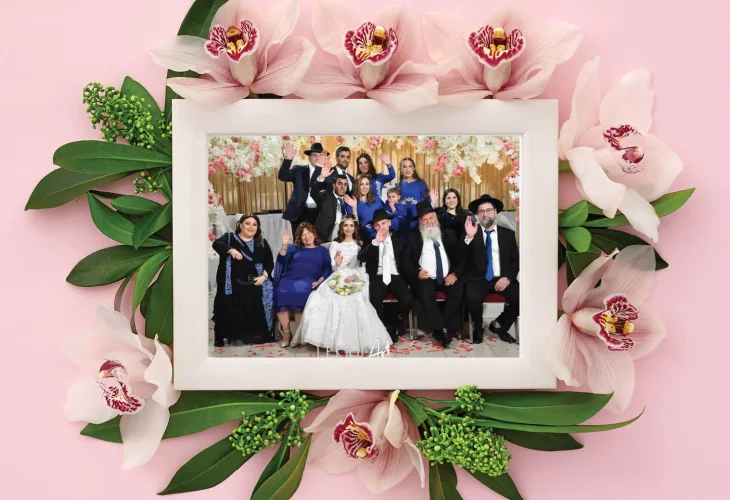 Yaffa Tsanziper at her son's wedding, accompanied by her husband, children, parents, and daughter-in-law.
Yaffa Tsanziper at her son's wedding, accompanied by her husband, children, parents, and daughter-in-law."Every spring, my father would reminisce how his grandmother prepared a 'hard pastry,' only for him to later realize it was actually matzah," recounts Yaffa Tsanziper about her father, Rabbi Elman. "Additionally," she notes, "My grandfather always kept his head covered and concocted a special drink from grapes, but it never occurred to my father these customs were connected to being Jewish."
Yaffa's father was born in St. Petersburg, Russia, where he later married his wife from Crimea. "Both knew about their roots, but grew up with no understanding," Yaffa clarifies, "Yet, my father had an unforgettable Passover eve when his grandparents visited their tiny 'communal apartment.'"
"Grandfather would take my dad and uncle to a room, shut the door, and start telling them, 'You know children, we are Jews, the chosen people.' But whenever he tried to elaborate, grandmother would place soup before them, pleading, 'Don't talk, the soup is getting cold,' thus halting him. Dad noted with regret that had he truly tried to listen, perhaps it wouldn't have taken 25 years until his religious awakening. But at that time, he and his brother ignored it and went on with their Soviet friends and university life. It's unsurprising since communism ruled everywhere, and it was dangerous and frightening to take an interest in Judaism."
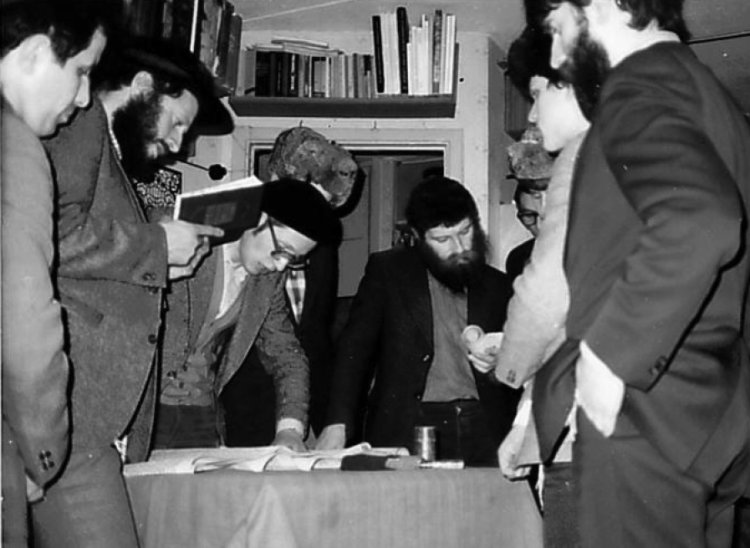 Underground studies
Underground studiesDetention Cell
Many years later, Yaffa's parents married and opted to stay in St. Petersburg. When Yaffa was a little girl, her father's first signs of religious awakening began. "It all started with him and some Jewish youth organizing a trip to Kiev to visit the 'Babi Yar' memorial site, where tens of thousands of Jews from Kiev are buried," Yaffa recounts. "They didn't know how to recite Kaddish or prayers for the departed, but wanted to lay flowers at the grave."
"My father arrived by taxi, but as he bent to retrieve the flowers, he sensed darkness enveloping him. When he turned, two men pushed him into a car with tinted windows, and took him to the police station in Kiev. There, he was warned sternly about the severity of his actions: 'You may be Jewish, but don't flaunt it, otherwise we'll label you an enemy of the state.' Subsequently, they jailed him with criminals, denied him food, though the criminals gave him some provisions."
Yaffa pauses. "Imagine the distress of my mother and grandmother when my father disappeared without a trace for ten days," she says with emotion. "After ten long days, he was released, with KGB officials reminding him, 'Forget you're Jewish; it's only on your ID card.'
"Then something intriguing occurred," she notes. "While KGB officials hoped my father would be frightened into submission, the opposite happened—my father began contemplating, 'Why is being Jewish such a grave crime? If the authorities combat it, it must be something significant.' He recalled his grandfather's unfinished stories and the strange language his grandparents spoke, deciding that upon his release, he'd explore the significance of his heritage."
"Upon release, he headed straight to the city’s synagogue, a place back then reserved for the elderly, with young people barred entry. He witnessed the Yom Kippur afternoon service underway—only to realize that his incarceration coincided with the Ten Days of Repentance, the most fitting time for a Jew to turn back to faith."
"From the synagogue, he went home and informed my mother, 'Today is Yom Kippur. We don’t know much about it, but I've decided to explore our Jewish identity. Are you with me?' My brave mother didn’t hesitate before replying, 'I’m with you all the way.'"
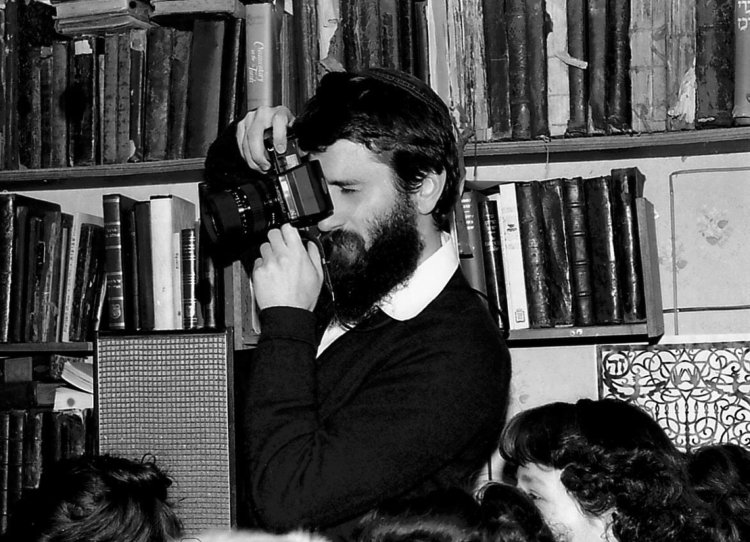
Informers, Fear, and Secrets
"My parents gradually grew interested in Judaism," Yaffa describes, "joining an underground group to study, pray, and strive to observe holidays and Shabbat. However, the KGB was well aware, retaliating by firing my father from his job in a humiliating fashion, accusing him publicly of espionage for Zionism. Frustratedly, though deemed an enemy of the state, he was denied exit from the country."
"With no livelihood, my father worked at a bathhouse, a job below his intellectual level, but allowing him to swap shifts with gentile workers eager for Sundays off, letting him keep Shabbat."
Yaffa vividly recalls this period, laden with betrayals. "The KGB coerced neighbors and group members to report the activities of 'refusenik' families, threatening them cruelly. They might take a friend of my father's to the river, whispering ominously, 'Stop observing Shabbat, or tomorrow you'll be fish bait.' Or drag a neighbor to the KGB building, stating, 'You don’t have to inform on the Elman family, but don’t be surprised if your child goes missing tomorrow.'"
"These tactics terrified people, often leading them to disclose information. This heavy-handed punishment befell many underground participants. Unlike civilized countries where legal penalties are clear, in the Soviet Union, if deemed an enemy, the KGB would arbitrarily decide fates—ranging from Siberian exile to a mental hospital, or just disappearances."
What was your experience as a child during this time?
"In those years, I was in elementary school, forced to mature quickly, acutely aware of our precarious surroundings. Spies approached me for information, but I always had answers and evaded them."
"At school, I fabricated excuses to avoid desecrating Shabbat and generally maneuvered to skip school on Saturdays. Fortunately, we found a righteous doctor who weekly provided medical notes excusing me to stay home. Occasionally, to evade suspicion, I'd attend school on Shabbat with a bandaged hand, preventing writing. I completely stopped eating school meals, instead claiming, 'My stomach hurts,' or 'I dislike it,' to avoid suspicion."
Above all, Yaffa cherishes Sundays, when school was off, providing secret Jewish lessons. "Adults joined us, taught us about holidays and Shabbat, Hebrew, and organized plays in rhymes. Despite the eeriness, the ambiance was warm, and the adults did everything to enrich our childhood despite the challenges and dangers."
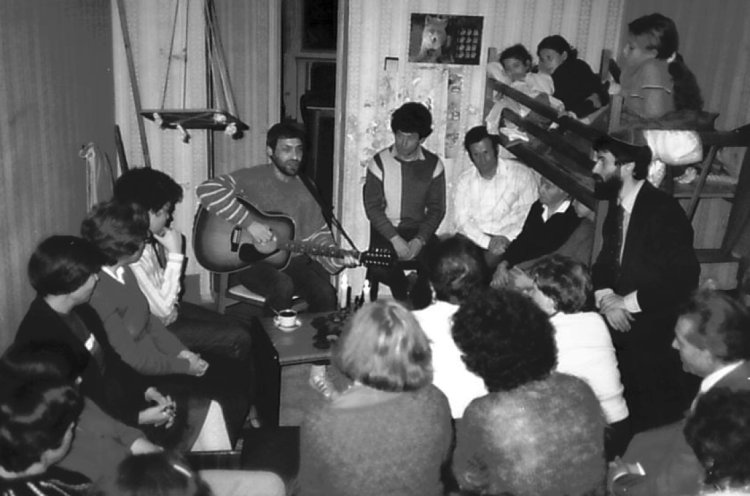
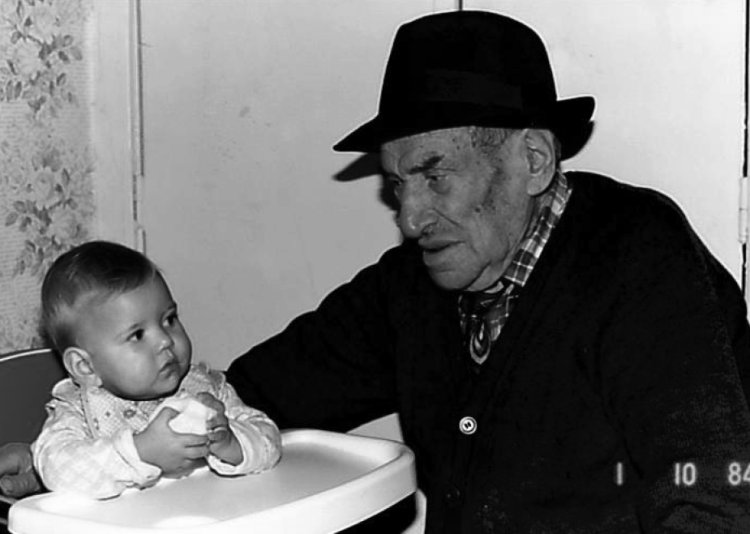 Father's grandfather, Nachum Dov Ber Gorlitz of blessed memory
Father's grandfather, Nachum Dov Ber Gorlitz of blessed memoryBris Under Peril
When Yaffa was six-and-a-half, her sister Malka was born, followed a year later by her brother David, preceded by a dramatic event. "My father was arrested," Yaffa narrates, "and news reached my mother he'd been sentenced to 15 years in Siberia. Shock induced labor pains. Instead of heading to the hospital, she did the unthinkable—taking my sister and me to the KGB building, leaving us with friends before dramatically confrontationally entering and witnessing my father being beaten. She asserted she'd deliver her baby there unless her husband, my father, accompanied her to the hospital. This assertion inexplicably succeeded, securing his leave under the condition of immediate return for his trial."
"He never returned to the station, instead he went home. In gratitude for Hashem's great miracle of reversing a 15-year Siberian sentence, he affirmed his son would be circumcised on the eighth day, according to the mitzvah of bris milah. My mother agreed, and my father announced to everybody that the bris would take place at home. Those hesitant were reassured, 'The invitation is to those who wish to be blessed.' A friend, a pediatrician, was appointed as mohel, with my father confidently stating, 'You have time to study, you’ll manage.'"
"On the bris day, the house was packed, the mohel arrived and performed the ceremony with immense emotion, as it was the first in decades held in St. Petersburg on the eighth day. While the bris took place, I was strolling with baby Malka, equipped with heightened senses for danger. Spotting two men lingering suspiciously, I returned home to alert everyone, allowing them to hide mementos and prayer books before the KGB knocked. Fortunately, they didn’t demand to see the baby, merely glanced distantly before departing, leaving us relieved and dispersing instantly."
"Undoubtedly," says Yaffa, "the bris was the most intense experience we underwent, though many more miracles occurred. The greatest was during Chanukah, with the lighting of the fourth candle, we received our exit visas, given a month to arrange our departure. We left everything to make Aliyah—my parents and us three young children. This was 1987, before the Iron Curtain fell."
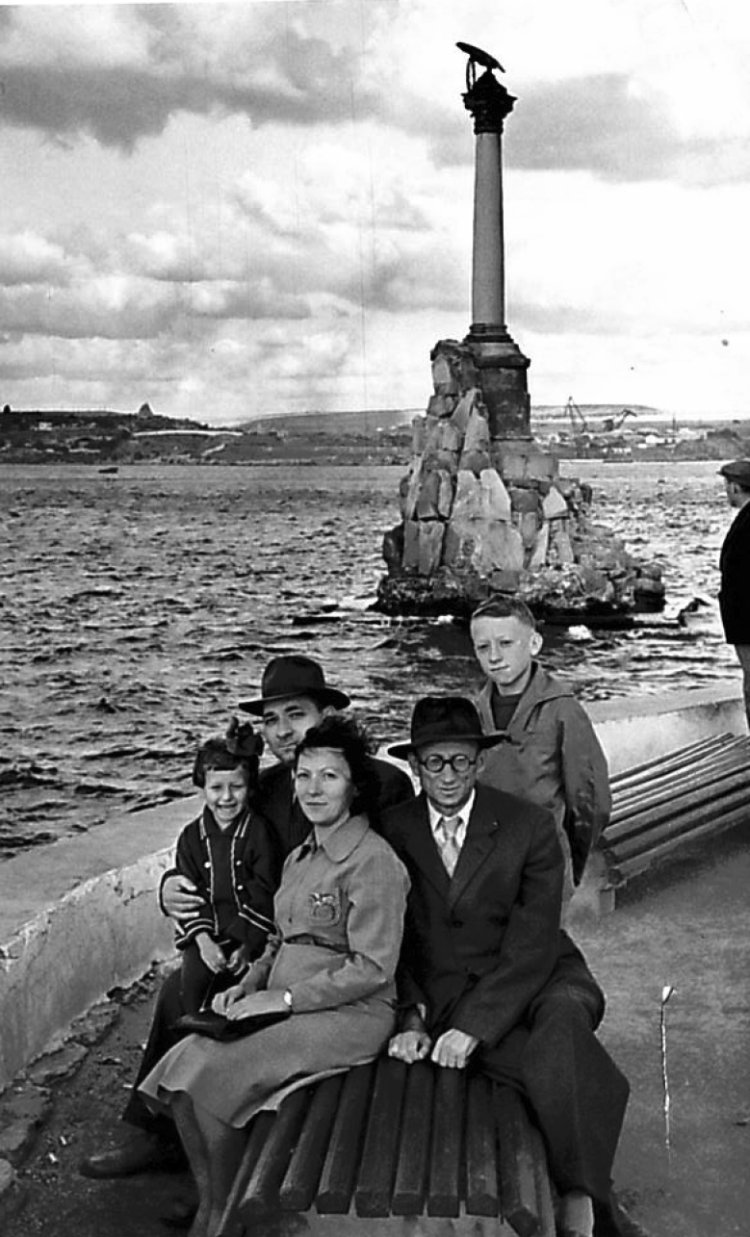 Yaffa's mother with her brother and parents
Yaffa's mother with her brother and parentsA Life of Purpose
Upon arriving in Israel at age ten, the sense of mission never left Yaffa. After her marriage, she embarked on a mission to Moscow for several years, later returning to work with young Russian immigrants in Israel. She managed housing for Russian girls, and during a second mission in Odessa with her family, her husband studied and taught, while she managed a dormitory for Jewish female students from outside Odessa."
"We eventually returned to Israel for our children’s education," she explains, "though maintaining community ties for years, reaching Odessa once a month until the Ukrainian war broke out. Currently, I visit the community now shifted entirely to Romania, still engaged in matchmaking for Russian and Ukrainian emigrants. Now more a 'matchmaking consultant', I perceive it a privilege, not just guiding their spiritual journey but actively caring for their futures. Living in Modiin Illit, I advance youth programs citywide."
Additionally, Yaffa delivers captivating lectures on her life journey, sharing rare footage featuring her parents, providing unprecedented insight into their extraordinary courage. "My parents reside in Jerusalem," Yaffa notes, "having five more children in Israel—each of us now married, establishing Torah homes, blessedly granting my parents immense joy after years of relentless dedication."

